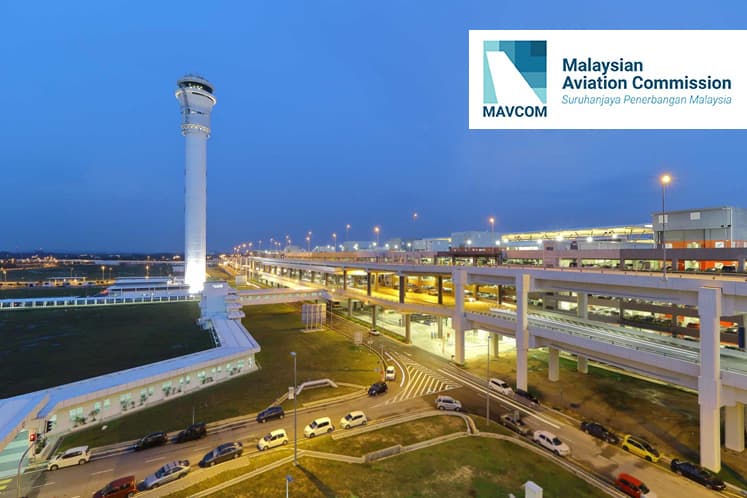
KUALA LUMPUR (June 26): The Malaysian Aviation Commission (Mavcom) expects air passenger traffic to drop further by between 48.7% and 50.3% year-on-year (y-o-y), which translates into 54.3 million to 56 million passengers, this year amid higher seat cancellation and lower seat capacity.
The commission had previously predicted that passenger traffic would shrink by 36.2% to 38.1% y-o-y due to the Covid-19 pandemic, it said in a statement today.
In the first five months of the year, Malaysia saw a 55.2% y-o-y drop in passenger traffic to 19.6 million passengers, following the implementation of travel restrictions imposed by governments worldwide to contain the spread of Covid-19 — including the Movement Control Order mandated on March 18.
The commission had initially estimated that 35.2% of domestic seats and 42.9% of international seats scheduled for 2020 would be cancelled due to the travel restrictions, translating into 44.8 million seats.
“As at early June 2020, 38.8 million seats had already been cancelled by local and foreign carriers, higher than Mavcom’s previous estimate of 31.0 million seat cancellations in 2020,” it said.
As of early June, Malaysian carriers have cancelled a total of 29.6 million seats in 2020, as compared to the 28.3 million seats at end-May.
Meanwhile, foreign carriers maintaining routes to and from Malaysia have cancelled 9.2 million seats as of early June, compared to the 8.5 million at end-May.
The revenue at risk for Malaysian and foreign carriers in 2020 is forecasted to be RM11.3 billion and RM4.6 billion respectively, from RM6.8 billion and RM5 billion respectively.
This represents 51.1% of estimated total airfare revenue in 2019.
For aerodrome operators, Mavcom estimates that passenger service charge (PSC) revenue at risk is now RM500 million, from RM400 million previously — translating into 33.3% of total PSC revenue in 2019.
Mavcom executive chairman Datuk Seri Saripuddin Kassim said the impact of the pandemic on the aviation industry has been very severe, and with no comparable precedent, it is hard to predict when it will recover.
“The current relaxation of movement restrictions within Malaysia, however, should facilitate faster recovery for the domestic market. Immigration controls and quarantine measures in Malaysia and elsewhere, alongside passenger willingness to travel by air during this period, will also influence how quickly the overall industry will return to pre-Covid-19 levels.
“The safe re-introduction of international travel and the adoption of the International Civil Aviation Organization (ICAO)-recommended safety measures vis-à-vis managing Covid-19 for air travel could go some way towards reinvigorating the industry,” he added.